Optics in Engineering & Manufacturing– Why Quality & Accuracy is all about the Components
12th Feb 2019As we determined in our last post, optics have revolutionised manufacturing and engineering processes significantly, offering benefits such as enhanced quality and consistent accuracy, energy efficiency, reduced costs, boosted turnaround and an ability to tackle complex processes in harsh conditions. Thousands upon thousands of products have seen considerable improvements thanks to superior production and control methods. But the end product will only ever be as good as the sum of its component parts. The importance of optical components in this evolutionary tale is, therefore, vital.
In this post, we are taking a look at some of the most popular components within the common optical instruments used for engineering and manufacturing processes. We will discover how they can be engineered to meet the demands of the environments in which they are used, and the critical reliance that is placed upon them, so that quality and accuracy can be guaranteed from start to finish.
Optical components and harsh manufacturing environments
One of the key advantages of optical applications is that it is possible for them to be used in the harshest of environments. Naturally, that means that the optical components used within them must be engineered to meet the demands of those environments, and of the critical reliance being placed upon them.
Laser optical components, for example, must be of exceptional strength to withstand billions of laser pulses. Machine vision components often have to endure extreme climatic and chemical conditions. Sensor, analysis and measurement equipment cannot be anything other than precision accurate.
Custom designed optics vital to the success of demanding applications and environments
It is customary in demanding environments and where reliance on accuracy is critical, for optical instruments used in manufacturing production and control to be composed of exceptional quality optical components which have been custom created to suit the specifics of the application.
The significance of employing the utmost in technical expertise in the design of such components cannot be stressed enough.
The likes of longpass colour glass filters, used widely in demanding manufacturing optical applications, are made from the highest quality glass and then precision cut and polished to meet strict standards and parameters.
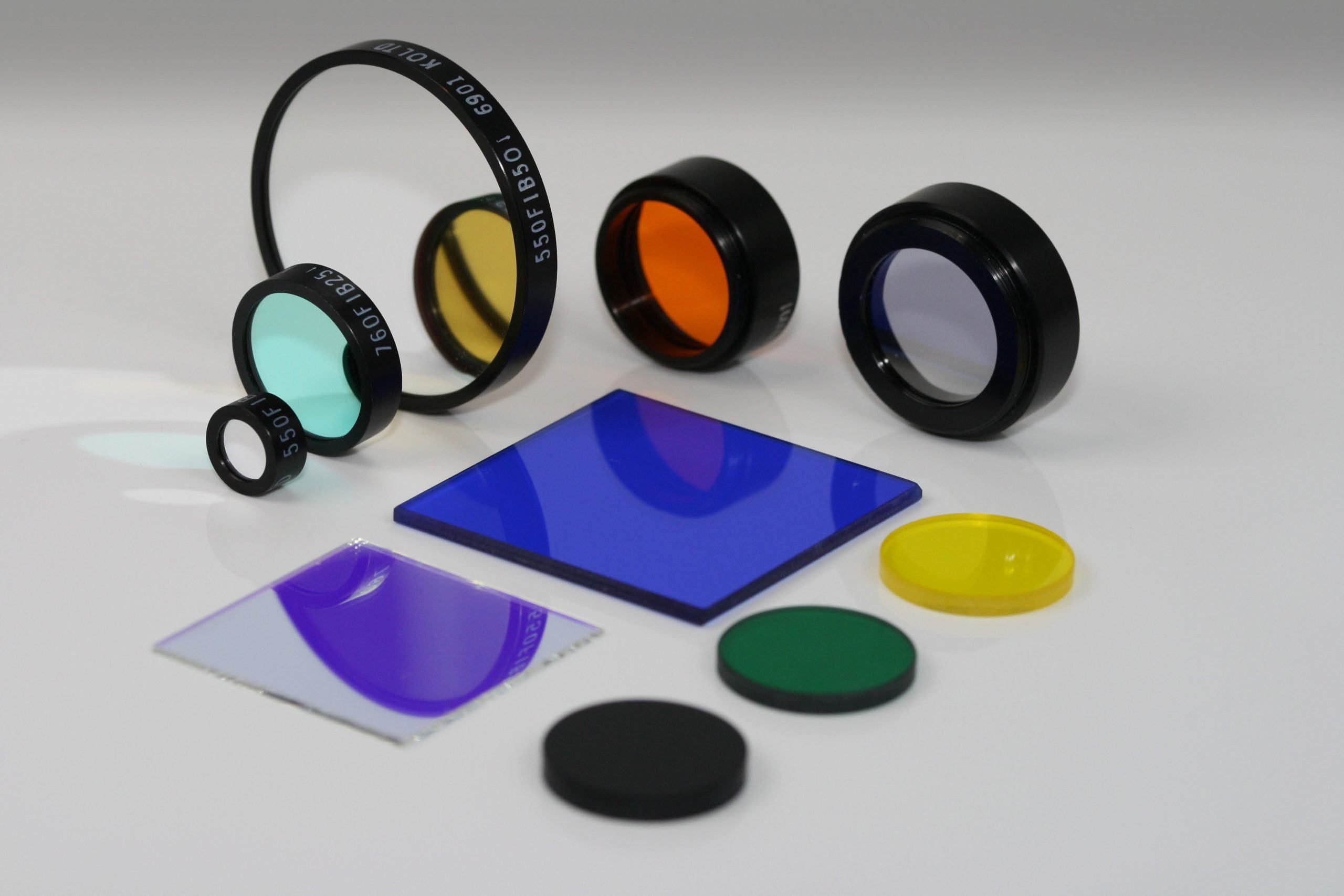
Plane mirrors (front surface mirrors) are also used in a range of high demand manufacturing control applications, including imaging used in machine vision and metrology. The mirrors are coated in such a way that they are optimised for the specific region of the spectrum in which they are being used. Enhanced aluminium is a coating used in visible applications. The aluminium protects the optic, whilst the enhancement, a dielectric over-coating, increases its durability, improves handling and protects it from oxidation. The over-coating can also be customised to boost the reflectivity of the metal coating. Customisations such as these make plane mirrors the ideal option for a variety of laser and other manufacturing applications.
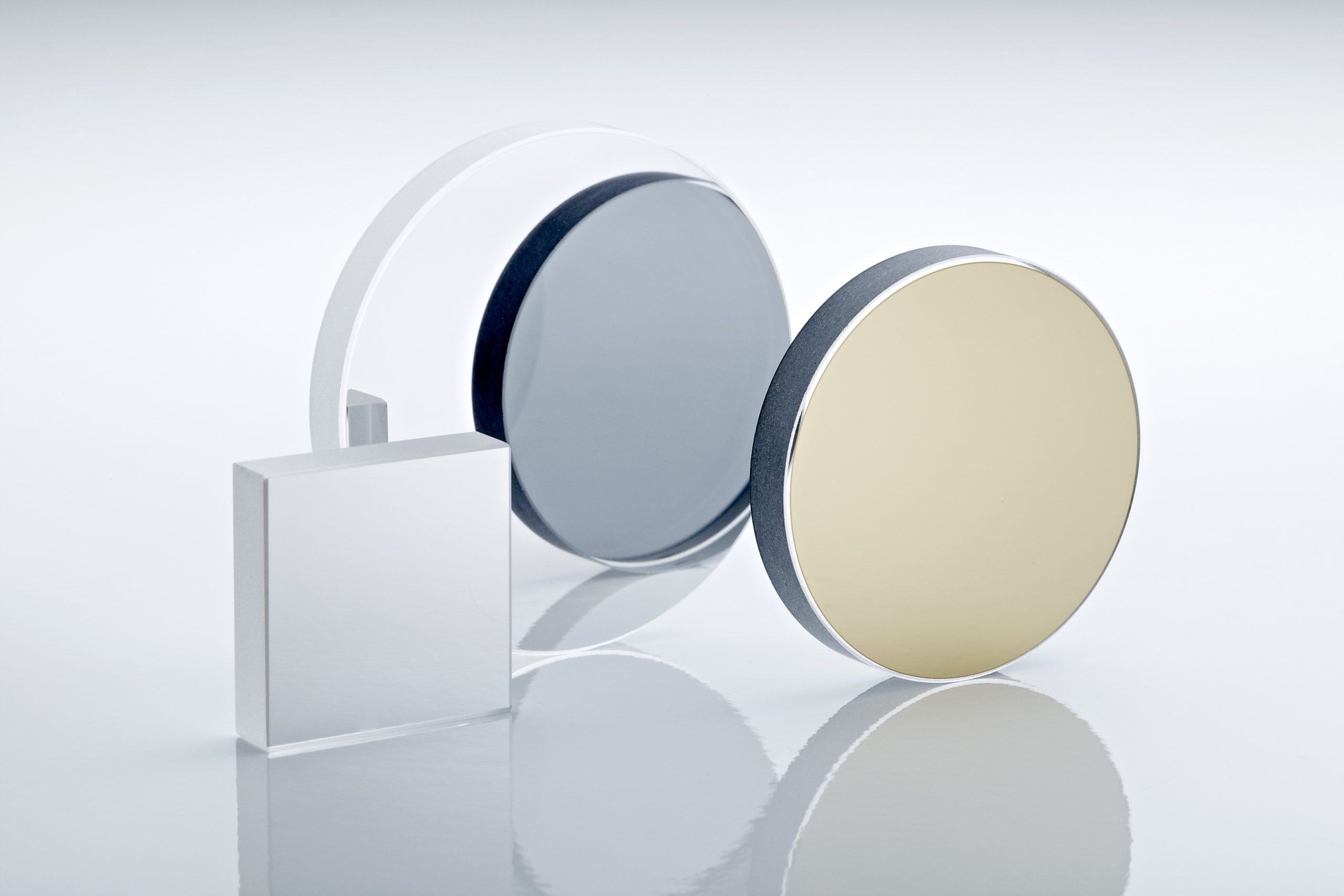
UV fused silica windows, used in laser and industrial applications, are favoured for their superior transmission. The fused silica presents higher thermal properties and top-grade purity, both of which equal exceptional durability in harsh environments, making these optical components a popular choice for demanding applications. The windows can be coated and produced in a range of sizes to suit individual requirements such as limited space.
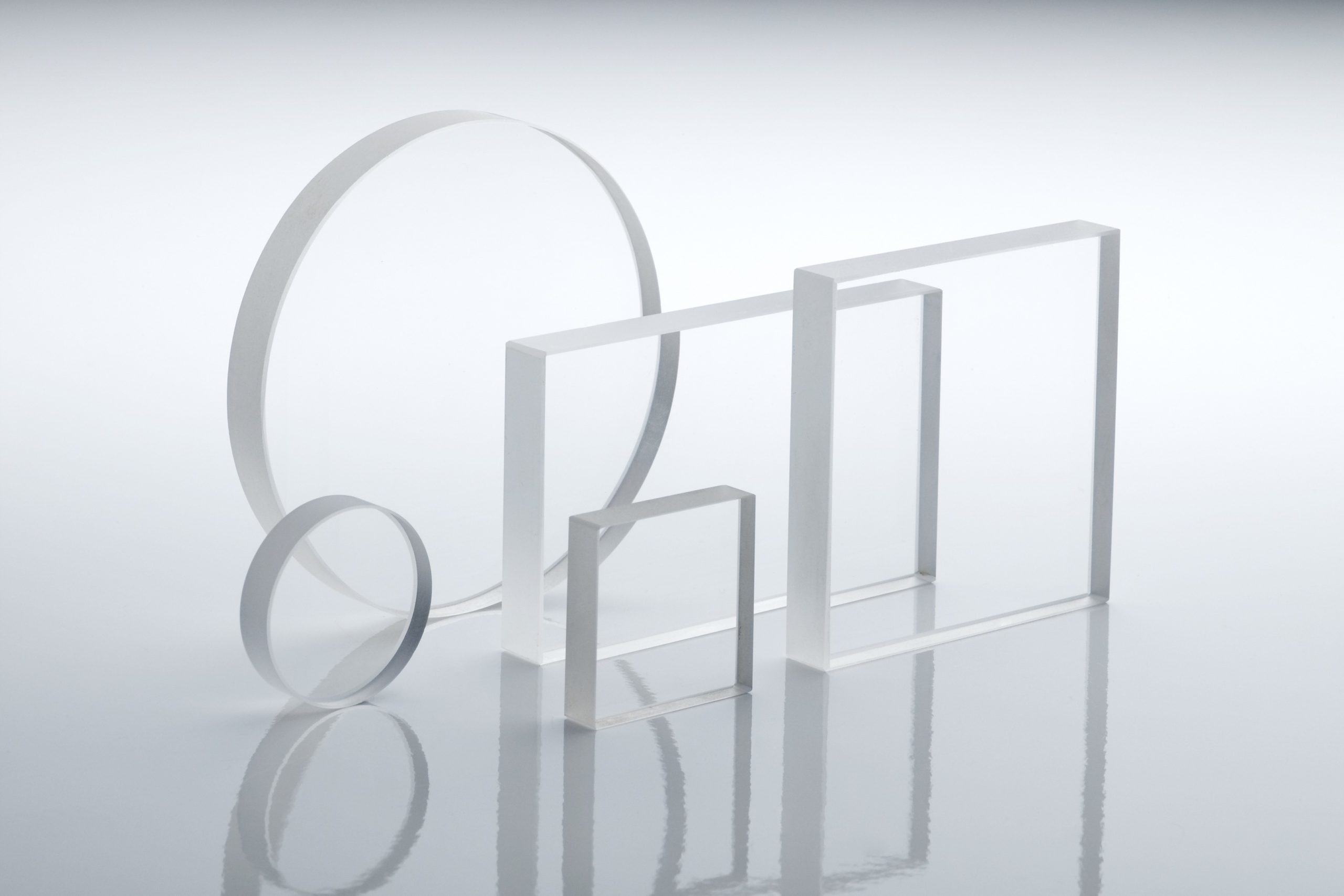
Aspheric lenses play a vital role in laser and imaging engineering applications, correcting spherical aberration and preventing image distortion. The major advantage of aspheric lenses is that they can potentially replace a multi-lens system with just a single lens, which is particularly beneficial for applications where space is a limiting factor. These lenses can be coated to achieve improved transmission at required wavelengths; they can also be fire polished to work optimally in light collecting applications, or thermally toughened to withstand high temperatures.
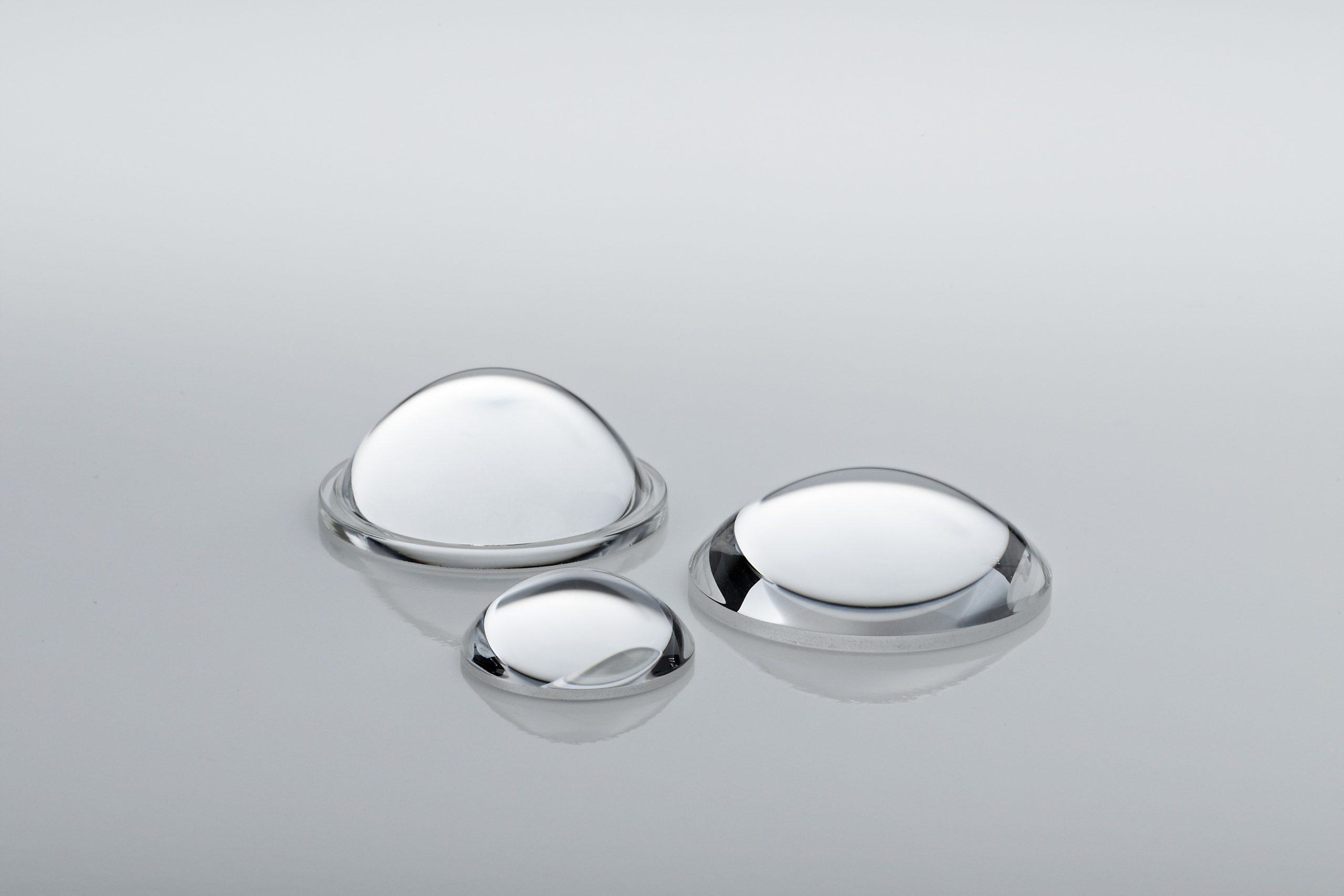
Sapphire windows are another vitally important role-player in manufacturing applications, in particular in the protection of optical sensors from environmental influences. Because sapphire is such a robust material, second only in hardness to diamond, it has the ability as an optical window to resist abrasion; to withstand temperatures up to 2030 Celsius and to remain unaffected by almost all chemicals. Customisation of sapphire windows, such as edging or designing with square or rectangular apertures can ready them for a range of manufacturing and engineering environments and applications.
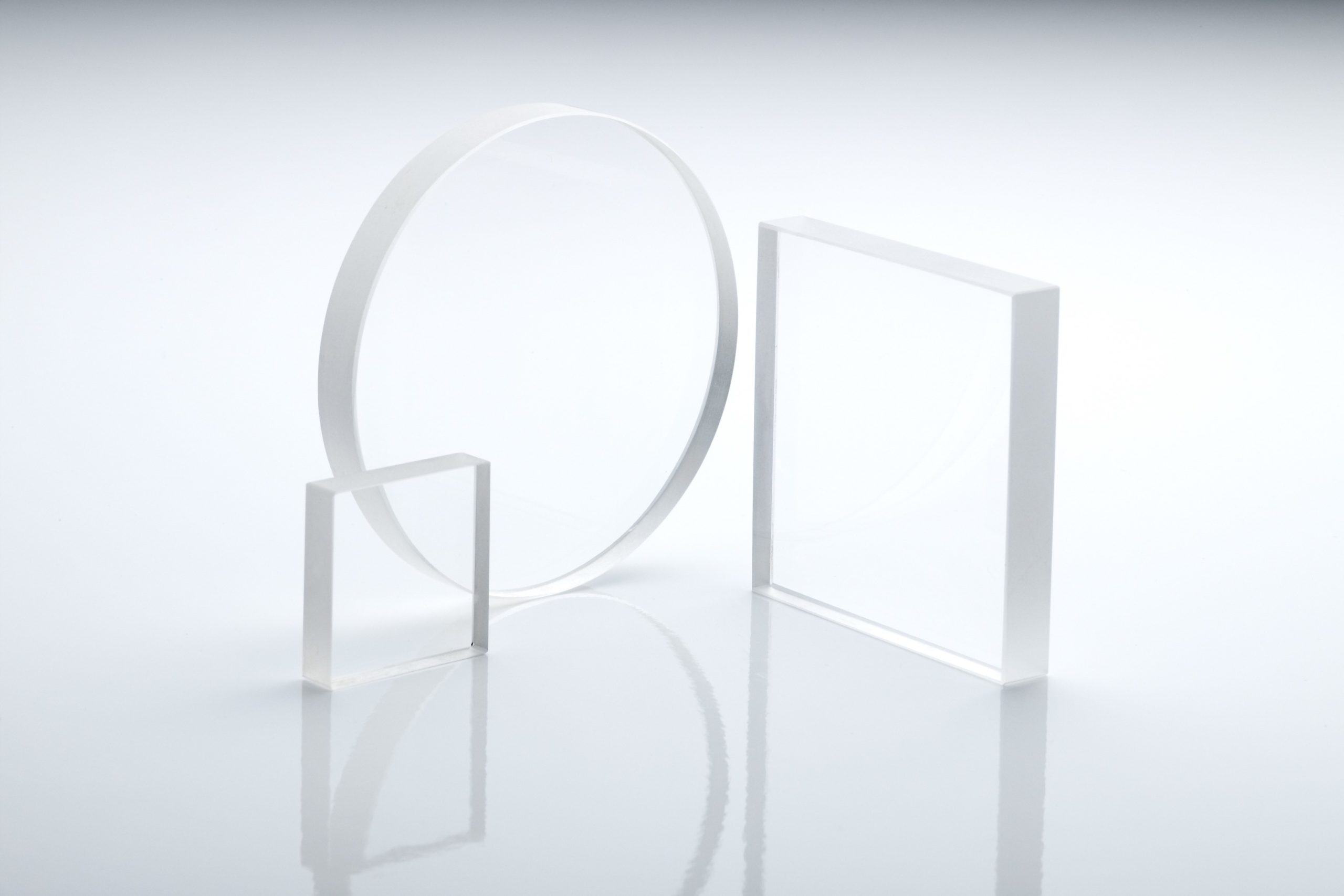
Major leaps and bounds in manufacturing are a result of precision control
So we can see that precision design and customisation of optical components play an essential role in regard to the many optics-based applications used throughout engineering and manufacturing processes.
Since optical products were introduced to manufacturing processes, major leaps and bounds have been made in end product quality. Cars, for example, would be pushed to last 100,000 miles just a few years ago, but nowadays, thanks to precision control throughout the production process, a car will regularly go 300,000 miles or beyond.
An end product, however, is only ever going to be as good as the sum of its component parts. The use of optics in manufacturing and engineering delivers extensive benefits, but to reap these benefits the components that make up the optical applications must be of premium quality, and precision crafted to ensure they meet the specific demands of the application and its environment.
Precision Optical Components for Manufacturing Applications from Knight Optical
At Knight Optical we have been specialising in the custom design of precision optical components for almost 30 years. Our investment in the industry’s very best, state-of-the-art metrology instruments and our exceptional metrology technicians enable us to make certain that each and every optical component destined for our customer meets their exacting requirements, without compromise.
Should you wish to discuss your individual optical component requirements for any engineering or manufacturing applications, our experienced, multilingual sales team and industry trained technical experts are ready to assist and able to develop solutions that meet your specific challenges.